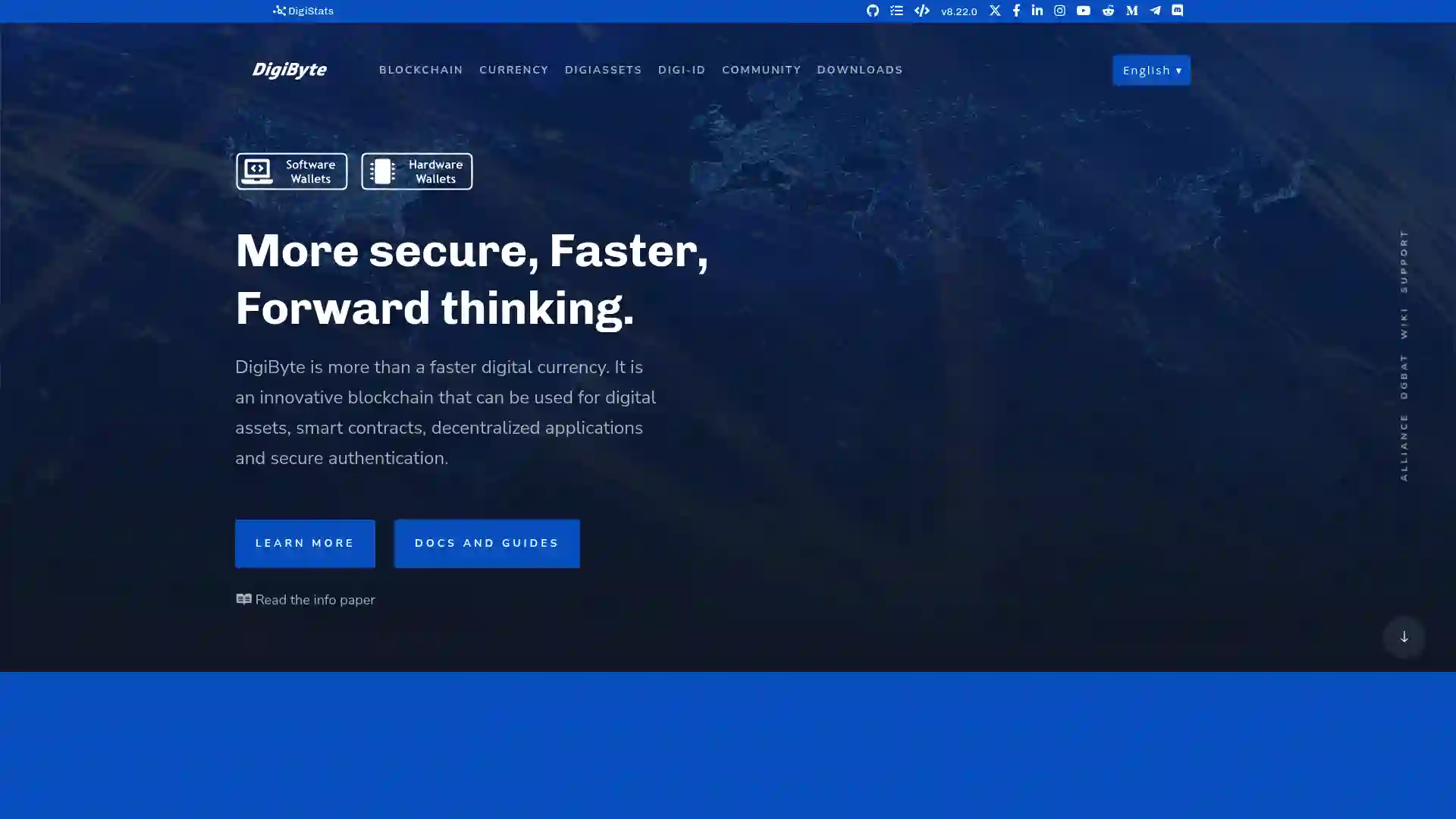DigiByte (DGB)
DigiByte (DGB) is an open-source cryptocurrency that operates on its own blockchain, known for its speed and security features.
History of DigiByte
DigiByte was developed in 2013 and officially launched in January 2014 by Jared Tate. His motivation was to enhance the security and speed of Bitcoin. In 2016, DigiByte was integrated into Microsoft's Azure platform, and it was chosen for the BizSpark program, which supports blockchain projects with software resources.
Features of DigiByte

| Ticker | DGB |
| Category | Cryptocurrency |
| Website | https://DigiByte.org |
| @digibytecoin | |
| Telegram | DigiByteCoin |
| https://www.reddit.com/r/Digibyte |
DigiByte builds upon the foundation of Bitcoin but introduces several modifications, including 15-second block times, making it the fastest UTXO blockchain. It employs five distinct cryptographic algorithms to prevent mining centralization. Early in its existence, DigiByte implemented the DigiShield hard fork to protect against low-difficulty mining by multi-pools, a technology later adopted by other cryptocurrencies like Dogecoin and Zcash.
DigiBytes are secure digital assets that aim to protect valuable digital data from being destroyed, counterfeited, or hacked. The platform also promotes decentralized applications and features a layered architecture:
- The applications layer supports decentralized apps (dApps), Digi-apps, and smart contracts.
- The digital asset and public ledger layer ensure the security and management of data tokens and assets.
- The core protocol and global network layer provide communication for network nodes.
Digi-ID
Digi-ID is an authentication method designed for the DigiByte blockchain, enhancing security and speed by eliminating the need for passwords. It functions through blockchain-based signatures, allowing users to authenticate themselves using private keys.
Digi-Assets
Digi-Assets operate within the secondary layer of the DigiByte blockchain, offering a secure and scalable method to issue tokens, assets, smart contracts, and digital identities. This system enables the digitization and cryptographic representation of real-world items, including financial instruments, legal documents, and intellectual property.
See also
- List of cryptocurrencies
